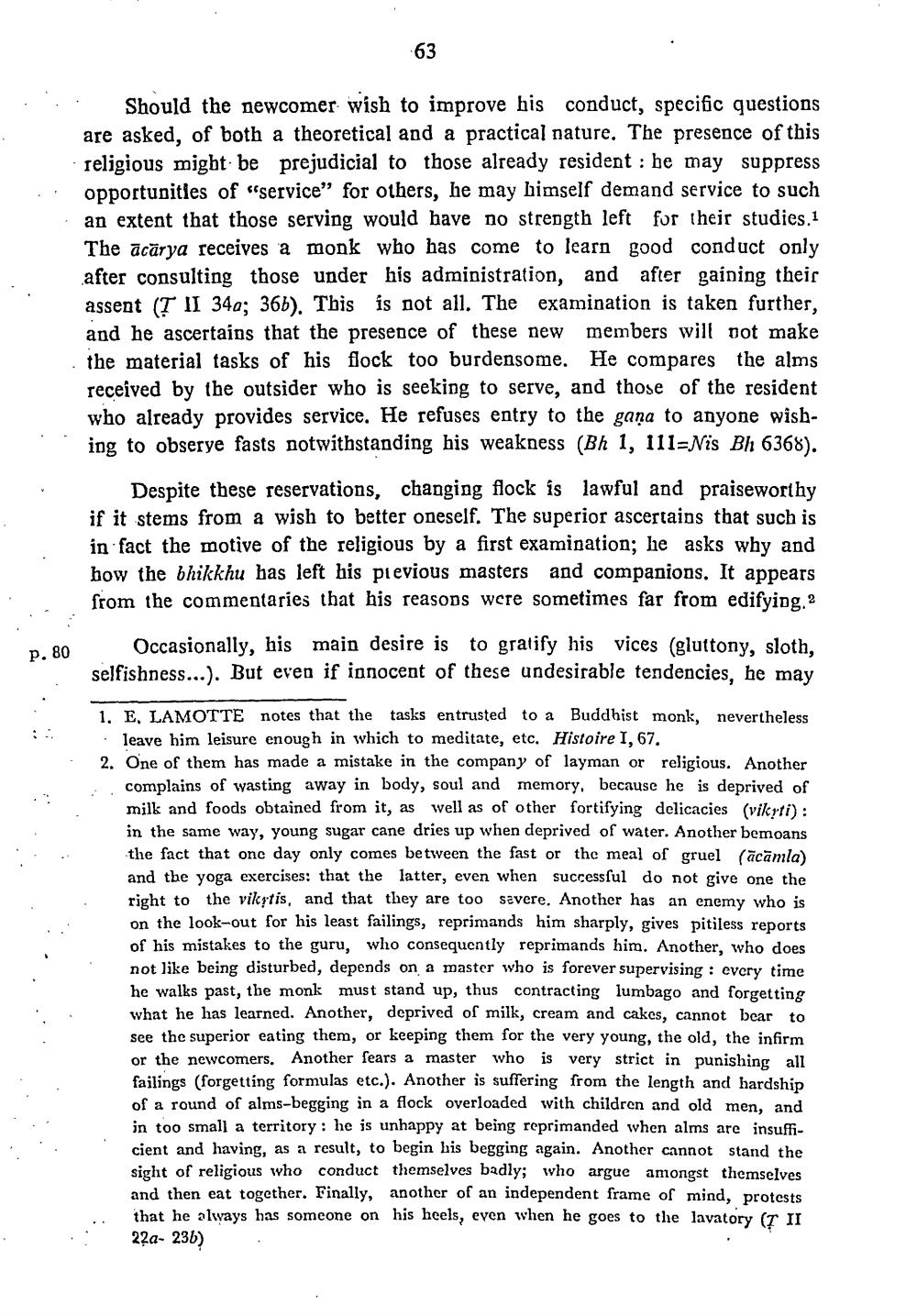________________
::
Should the newcomer wish to improve his conduct, specific questions are asked, of both a theoretical and a practical nature. The presence of this religious might be prejudicial to those already resident : he may suppress opportunities of service" for others, he may himself demand service to such an extent that those serving would have no strength left for their studies. 1 The ācārya receives a monk who has come to learn good conduct only after consulting those under his administration, and after gaining their assent (T II 34a; 36b). This is not all. The examination is taken further, and he ascertains that the presence of these new members will not make the material tasks of his flock too burdensome. He compares the alms received by the outsider who is seeking to serve, and those of the resident who already provides service. He refuses entry to the gana to anyone wishing to obserye fasts notwithstanding his weakness (Bh 1, 111=Nis Bh 6368).
Despite these reservations, changing flock is lawful and praiseworthy if it stems from a wish to better oneself. The superior ascertains that such is in fact the motive of the religious by a first examination; he asks why and how the bhikkhu has left his previous masters and companions. It appears from the commentaries that his reasons were sometimes far from edifying 2
1.80
Occasionally, his main desire is to gratify his vices (gluttony, sloth. selfishness...). But even if innocent of these undesirable tendencies, he may
.
1. E, LAMOTTE notes that the tasks entrusted to a Buddhist monk, nevertheless
leave him leisure enough in which to meditate, etc. Histoire I, 67. 2. One of them has made a mistake in the company of layman or religious. Another
complains of wasting away in body, soul and memory, because he is deprived of milk and foods obtained from it, as well as of other fortifying delicacies (vikrti): in the same way, young sugar cane dries up when deprived of water. Another bemoans the fact that onc day only comes between the fast or the meal of gruel (ācāmla) and the yoga exercises: that the latter, even when successful do not give one the right to the vikytis, and that they are too severe. Another has an enemy who is on the look-out for his least failings, reprimands him sharply, gives pitiless reports of his mistakes to the guru, who consequently reprimands him. Another, who does not like being disturbed, depends on a master who is forever supervising : every time he walks past, the monk must stand up, thus contracting lumbago and forgetting what he has learned. Another, deprived of milk, cream and cakes, cannot bear to see the superior eating them, or keeping them for the very young, the old, the infirm or the newcomers. Another sears a master who is very strict in punishing all failings (forgetting formulas etc.). Another is suffering from the length and hardship of a round of alms-begging in a flock overloaded with children and old men, and in too small a territory: he is unhappy at being reprimanded when alms are insufficient and having, as a result, to begin his begging again. Another cannot stand the sight of religious who conduct themselves badly; who argue amongst themselves and then eat together. Finally, another of an independent frame of mind, protests that he always has someone on his heels, even when he goes to the lavatory (T II 22a- 236)




